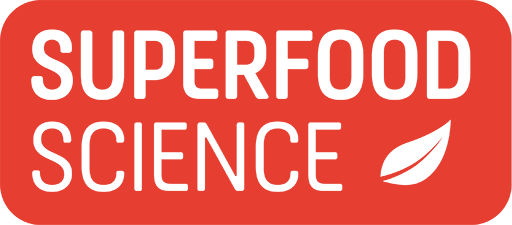If you are living with breast health issues or have a family history that keeps you proactive about your health, you are likely familiar with the search for wellness practices that complement medical care. While there is no substitute for evidence-based treatment, natural support options—such as Agaricus blazei, a medicinal mushroom—are receiving growing attention for their potential to enhance overall well-being.
What is Agaricus blazei?
Also known as the “almond mushroom,” and with the scientific name Agaricus Subrufescens, Agaricus blazei Murill (ABM) is native to North America and Brazil and has been used in traditional medicine for generations. Agaricus blazei gained popularity in Japan in the 1990s, following the publication of numerous research findings in the 1970s. Rich in bioactive compounds, particularly polysaccharides and beta-glucans, this mushroom is being investigated for its effects on immune function, inflammation regulation, and overall quality of life.
What Clinical Studies Show
Clinical studies have explored how the almond mushroom may benefit individuals managing breast health-related challenges:
- Research on Immune Support Activity in Clinical Studies
In a Phase I clinical study involving patients with gynecological cancer, including some with breast cancer, Agaricus blazei supplementation appeared to enhance natural killer (NK) cell activity, a key component in immune defense. Patients also reported better well-being during chemotherapy (Ahn et al., 2004). - Improving Quality of Life
A follow-up study evaluated patients in remission and found that daily intake of ABM extract was associated with improved energy levels and immune biomarkers, suggesting a potential benefit for those recovering from treatment (Ohno et al., 2013). - Modulation of Inflammatory Responses
A randomized trial among healthy older women observed that ABM helped balance inflammatory mediators. ABM is immunologically safe—it does not overstimulate the immune system or disrupt homeostasis in healthy individuals. (Lima et al., 2012). - Scientific Reviews on Safety and Mechanisms
Comprehensive reviews have noted ABM's potential anti-angiogenic and antioxidant effects, as well as its ability to stimulate key immune cells, such as macrophages and lymphocytes (Hetland et al., 2020; Kimura et al., 2004). These functions are under active investigation for their role in maintaining healthy tissue environments.
|
Study |
Population |
Intervention |
Outcomes |
|
Ahn et al., 2004 |
100 gynecological cancer patients (incl. breast cancer cases) |
Oral ABM extract during chemotherapy |
Increased NK cell activity; improved quality of life indicators |
|
Ohno et al., 2013 |
67 cancer patients in remission |
ABM granulated powder (1.8–5.4 g/day) for 6 months |
Improved physical and mental components of quality of life (age/gender differences observed) |
|
Lima et al., 2012 |
57 healthy elderly women (28 ABM, 29 placebo) |
900 mg/day ABM extract for 60 days |
Stable inflammatory cytokine levels, supporting ABM's immune safety in healthy populations |
|
Hetland et al., 2020 |
Review of preclinical and clinical studies |
ABM and related mushrooms (review) |
Potential anti-angiogenic, antioxidant, and immune-modulatory effects |
A Complementary Wellness Approach
It is essential to understand that Agaricus blazei is not a medication or a cancer treatment. However, its properties are being studied to determine how they might support the body during or after treatment, particularly by promoting immune resilience and improving quality of life, two areas of great importance for many patients and survivors.
If you are considering ABM as part of your wellness regimen, consult your healthcare provider. It may be one piece of a broader integrative approach, especially when paired with evidence-based care, nutrition, exercise, and emotional support.
Where to Start
Agaricus Bio offers supplements made from certified organic ABM mushrooms, cultivated with care to maintain the purity and potency of their active compounds. For those seeking a natural way to support immune health and vitality, Agaricus Bio products offer a convenient and conscientious option, grounded in both traditional use and emerging science.
References
- Ahn, W. S., Kim, D. J., Chae, G. T., Lee, J. M., Bae, S. M., Sin, J. I., ... & Namkoong, S. E. (2004). Natural killer cell activity and quality of life were improved by consumption of a mushroom extract, Agaricus blazei Murill Kyowa, in gynecological cancer patients undergoing chemotherapy. International Journal of Gynecological Cancer, 14(4), 589-594. https://doi.org/10.1111/j.1048-891X.2004.14403.x
- Hetland, G., Tangen, J. M., Mahmood, F., et al. (2020). Antitumor, anti-inflammatory and antiallergic effects of Agaricus blazei mushroom extract and the related medicinal Basidiomycetes mushrooms: A review. Nutrients, 12(5), 1339. https://doi.org/10.3390/nu12051339
- Kimura, Y., Sumiyoshi, M., & Kawahira, K. (2004). Effects of a water-soluble extract from Agaricus blazei Murill on hepatic and renal injuries induced by carbon tetrachloride in mice. Journal of Ethnopharmacology, 93(2–3), 231–236. https://doi.org/10.1016/j.jep.2004.03.003
- Lima, C. U. J., Souza, V. C., Morita, M. C., et al. (2012). Agaricus blazei Murrill and inflammatory mediators in elderly women: A randomized clinical trial. Scandinavian Journal of Immunology, 75(3), 336–341. https://doi.org/10.1111/j.1365-3083.2011.02654.x
- Ohno, S., Sumiyoshi, Y., Hashine, K., et al. (2013). Quality of life improvements among cancer patients in remission following the consumption of Agaricus blazei Murill mushroom extract. Complementary Therapies in Medicine, 21(5), 460–465. https://doi.org/10.1016/j.ctim.2013.07.001

